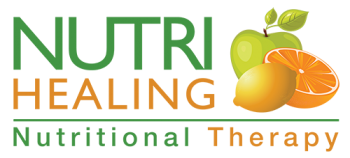Irritable Bowel Syndrome (IBS) - October 2009
What causes Irritable Bowel Syndrome (IBS)?
The cause is not clear. It may have something to do with overactivity of part or parts of the gut. The gut is a long muscular tube that goes from the mouth to your bottom. The small and large bowel (also called the small and large intestine) are parts of the gut inside the abdomen. Food is passed along by regular contractions (squeezes) of the muscles in the wall of the gut. Pain and other symptoms may develop if the contractions become abnormal or overactive. The area of over activity in the gut may determine whether constipation or diarrhoea develops.
The cause of over activity and one or more of the following may play a part:
- Sensitivity or Intolerance to certain foods.
- Sometimes the onset of symptoms seems to follow a bout of gastroenteritis (a gut infection which can cause diarrhoea and vomiting).So, perhaps a virus, parasites or other germs may 'sensitise' or 'trigger' the gut in some way to cause persisting symptoms of IBS.
- Stress is a contributing factor and unresolved emotional issues tend to trigger bouts of IBS
What are the symptoms of irritable bowel syndrome?
- Pain and discomfort may occur in different parts of the abdomen. It usually 'comes and goes' and the length of each bout of pain can vary greatly. The pain often eases when you pass stools (motions or faeces) or wind. Many people with IBS describe the pain as a 'spasm' or 'colic' and the severity of the pain can vary from mild to severe, both from person to person, and from time to time in the same person.
- Bloating and swelling of your abdomen may develop from time to time. You may pass more wind than usual.
- Stools
- Some people are mainly constipated and others may have constant diarrhoea.
- Some people have bouts of diarrhoea that alternate with bouts of constipation.
- Sometimes the stools become small and pellet like.
- Sometimes the stools become very watery and mucusy.
- You may have a feeling of not emptying your rectum after going to the toilet. Some people have urgency, which means you have to get to the toilet quickly. A 'morning rush' is common. That is, you feel an urgent need to go to the toilet several times shortly after getting up. This is often during and after breakfast.
- Other symptoms which may occur: nausea (feeling sick), headache, belching, poor appetite, tiredness, backache, muscle pains, feeling quickly 'full' after eating, heartburn, and bladder symptoms (an associated 'irritable bladder').
Doctors recognise mainly 3 categories:
- Those with abdominal pain or discomfort, and the other symptoms are mainly bloating and constipation.
- Those with abdominal pain or discomfort, and the other symptoms are mainly urgency to get to the toilet and diarrhoea
- Those who alternate between constipation and diarrhoea
Change your diet and lifestyle
- Keep a diary to eliminate any offending foods.
- Eat whole, nutritional foods and avoid processed, convenient foods.
- Eat regular small meals (no skipping meals) breakfast, lunch, dinner & healthy snacks midmorning and midafternoon.
- Sit down and eat food in relaxed conditions, CHEW FOOD WELL, allow time for food to digest.
- Choose Organic foods where possible - to eliminate pesticides, hormones & antibiotics, chemicals, artificial flavouring & colouring.
Things that stress the Digestive System
- Caffiene can stimulate bowel movement
- Alcohol
- Fizzy drink
- Red Meat
- Dairy product
- Fatty fried food
- Avoid Wheat some people are very sensitive - eat alternatives - Oats, Spelt, Rye (check for hidden wheat in processed or packages foods) READ LABELS
- Avoid cow's milk as some people lack the enzyme Lactase which breaks down Lactose, use alternative products - Soya, oats, rice, goat's, sheep's.
- Cut out as much sugar as possible and use Honey instead.
- AVOID these fruits with IBS - Plums, Oranges, Rhubarb, Orange juice. Buy fresh juices not concentrate and dilute ½ juice, ½ water.
- AVOID corn.
Fibre - Very important
Soluble: broken down into jelly-like mass (soft & smooth) vegetables, fruit, oats, barley, rye, seeds, nuts, pulses.
Insoluble: plant structure which passes undigested into large intestines (rough), can irritate gut - wheat bran, some wholegrain food, fruit skins, some raw vegetables.
Good foods for IBS
- Almond milk, oat milk, soya milk
- Basmatic rice
- Carrots
- Chickpeas
- Egg whites
- Hummus
- Yoghurts
- Noodles
- Oatmeal & oat bran
- Organic chicken
- White Fish
- Pasta
- Potatoes & sweet potatoes
- Root vegetables mashed
- Tofu
- Tune in spring water
- Vegetable soups
- Eat Fruit on any empty stomach and peel the skin off (insoluable fibre)
- - Can be eaten raw
- - Chop, slice or juice or steamed gently
- Make smoothies from fruit, yoghurt, banana, alternative milk, psyllium powder, ground linseed.
- Vegetables - Always cook slightly softer for easier digestion. You can (Mash) your vegetables or buy a juicer.
- Grind nuts if they have a negative effect when eaten whole.
- Herbal teas
- Peppermint, chamomile
- Drink plenty of water
Supplements
To help improve your nutritional status:
- Biocare - Probiotics - good bacteria to help with digestion and absorption
- Psyllium husk - helps to bulk stools or to relieve constipation
- Flaxseed - helps integrity of gut.
